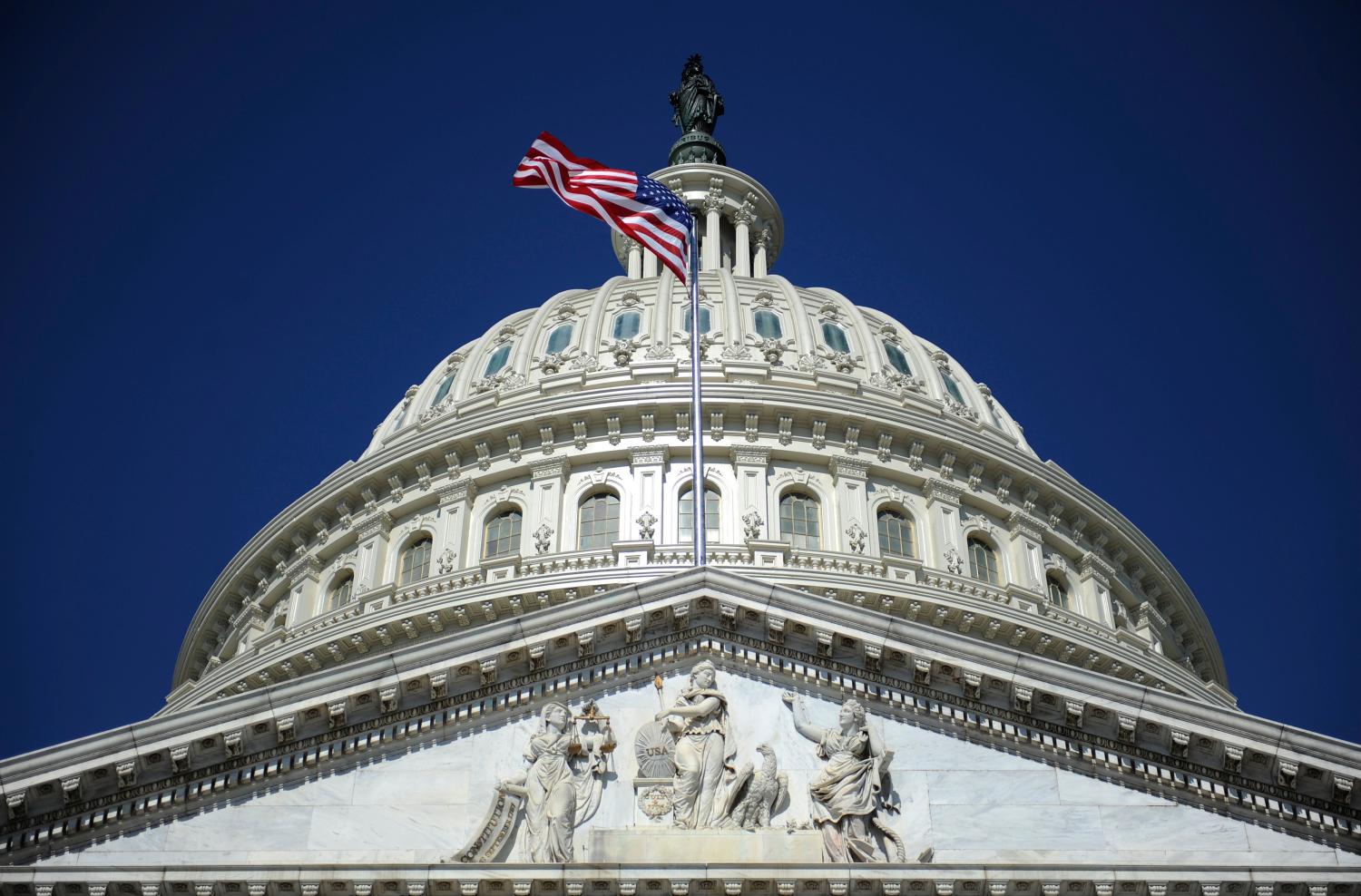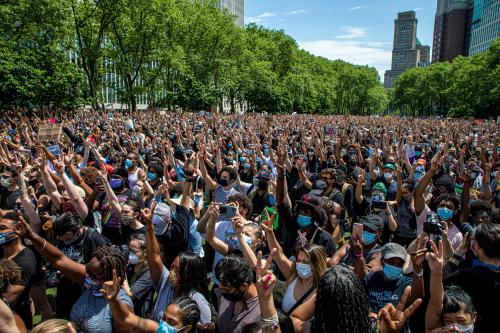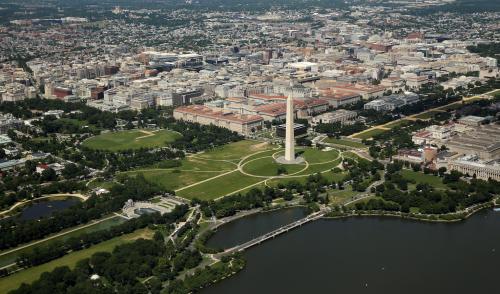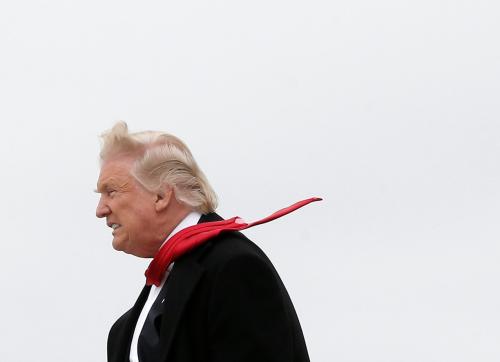Now that the dust has cleared on the Biden Democracy Summit, a perhaps surprising insight emerges—it laid a robust groundwork for success despite some skeptical and even pessimistic examinations of the challenges it faced. The summit has already resulted in some initial measurable commitments to advance democracy in the U.S. and abroad, establishing specific, concrete steps to fulfill them. But now there must be vigorous follow through by the United States, other participants, and in particular civil society for the Summit’s proposed “year of action” on democracy at home and abroad before it reconvenes next December. Only then will we know if the Summit’s promise was fulfilled.
U.S. credibility on democracy promotion, of course, begins at home, and there is profound reason to be concerned about the state of American democracy. Thankfully, the summit showed that the Biden administration understands all that. In his summit remarks, President Biden honestly and accurately diagnosed many of the problems that this country faces. Summing up the U.S. democratic experiment in broad terms, he stated that “American democracy is an ongoing struggle to live up to our highest ideals and to heal our divisions,” a theme which permeated the entire week.
Moreover, the administration seems resolved to try to do something about problems at home and around the world. As we and our co-authors explain in our Brookings report, “Democracy Playbook 2021: 10 Commitments for Advancing Democracy” there is a set of potential best practices that social science and historical experience suggest can work to halt democratic backsliding and revive democratic health. While there is no silver bullet, some critical drivers include strong laws protecting voting access, vibrant protections against corruption, prosecutorial and judicial independence to underpin the rule of law, meaningful support for independent media, and equitable pro-growth policies to address economic inequality and raise standards of living across demographic lines.
Over the course of the summit, the Biden administration rightfully focused on these key domains, beginning with the U.S. anti-corruption strategy released to kick the week off. It is a comprehensive anti-corruption plan—the first integrated domestic and international American strategy of its kind. The plan underscores the Biden Administration’s deep investment in fighting off corruption on a transnational scale by pledging to bolster multilateral anti-corruption platforms, temper illicit financial flows, and hold corrupt agents to account. And the administration began implementing those commitments, including by sanctioning 13 individuals or entities linked to the notorious Dan Gertler, alleged to have engaged in corruption affecting extractive industries and natural resources.
Perhaps catalyzed by the increased U.S. attention to these issues, other nations took meaningful action on corruption. For example, in his opening remarks, Prime Minister Boris Johnson committed the United Kingdom to using new systems to sanction corrupt actors and take stronger measures to combat illicit finance around the world, while New Zealand’s Prime Minister Jacinda Ardern took a regional approach, committing money and energy to supporting Pacific countries’ anti-corruption efforts.
The most important single step taken for the state of U.S. democracy, though, was Biden’s emphasis on the passage of national voting rights legislation. Indeed, that was the top recommendation in our guide to needed commitments for all summit participants. Equal access to the vote is the backbone of democratic health. Yet our nation is seeing a full-out assault on voting unlike anything since the dismantling of Reconstruction and establishment of Jim Crow. From coast to coast, former President Trump’s followers are attempting to replace election officials, and distort voting rules, to make possible in the future what he and they failed to do in 2020—overthrow the will of the voters.
Federal legislation to protect and enhance access to voting has been blocked by the filibuster. But there remains hope that Congress might support comprehensive voting rights legislation. Previous news reports indicated that Sen. Joe Manchin (D-W.V.), regarded as the leading obstacle to changing filibuster rules, is meaningfully engaging with his colleagues about making the Senate work better by reforming (not replacing) the filibuster. He stated publicly over the weekend that he has “made no commitments or promises,” but continued to leave the door open for filibuster reform. There are a number of ways to do this, including reducing the number of senators required to open debate. These reforms would not ‘break’ the Senate or discourage collegiality; rather, they would do the opposite. Such a step would promote norms of mutual cooperation to accomplish goals that our research has shown is critical to reversing democratic backsliding.
Passing federal voting legislation will not, of course, resolve all the problems that have made the United States a backsliding democracy, not to mention the challenges that our allies are facing all around the world. Nor can a single summit propose a one-size-fits-all plan to democratic revitalization globally. And even hosting the summit at all entailed tradeoffs.
But what the summit can and did do, is clarify to audiences at home and abroad that promoting democracy is a priority for this administration and its allies. The summit presented opportunities for focused discussions on the breadth of the problems at hand, and analysis of possible solutions.
Those discussions were backed by the beginning of meaningful steps forward, although much more is needed. And it wasn’t just the U.S. making them. For example, on December 9th Canada advanced a series of commitments for advancing democracy and defending against authoritarianism, implementing the Plan to Protect Canada’s Democracy. Additionally, the U.S., Australia, Denmark, and Norway released a joint statement at the Summit for Democracy on the Export Controls and Human Rights Initiative, joined in support by Canada, France, the Netherlands, and the United Kingdom.
Now the hard part begins. The United States has encouraged participating nations to make their matching commitments over the course of the next month, to be followed by a “year of action” and then by the follow up summit a year from now. Will we see a flood of measurable concrete steps to defend and advance democracy along the lines set forth in our report and made during the summit itself? And will the United States and the others who already made commitments follow up and even expand upon them during the “year of action”? Or will participants rest on vague generalities and the follow up peter out?
The fact is, the realization of the Summit’s objectives will depend on government, civil society, the private sector, and labor, at the national, sub-national, and international levels. It is not important who starts the fight to strengthen democracy, but that the fight is owned by us all. The creation and nurturing of coalitions for change between different communities and sets of actors, from human rights and environmental protection to anti-corruption and investors, looking at ways to tackle challenges and build an enabling environment for change to happen, will be fundamental to achieve what the Summit challenges us to do.
The Brookings Institution is committed to quality, independence, and impact.
We are supported by a diverse array of funders. In line with our values and policies, each Brookings publication represents the sole views of its author(s).










Commentary
The Biden Democracy Summit: Will it actually work?
December 21, 2021